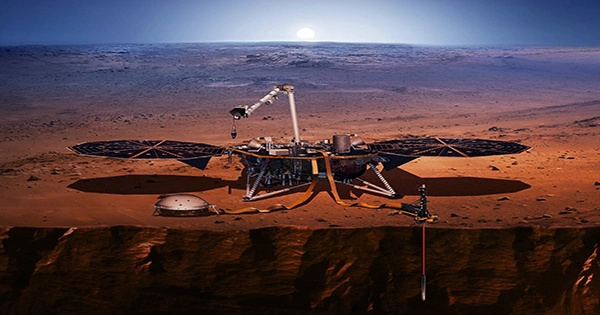The Mars Advanced Radar for Subsurface and Ionospheric Sounding (MARSIS) instrument on board the Mars Express spacecraft of the European Space Agency (ESA) is due to get a software update that will replace its outdated Windows 98 operating system. The software upgrade is anticipated to breathe fresh life into the spacecraft that discovered water buried beneath the Martian South Pole over two decades after the Mars Express was initially launched.
The orbiter is one of the most successful ESA programs and allowed us to study Mars’s past and present like never before, even though it’s possible that it was all just a hallucination. The MARSIS sensor should be able to look under the surfaces of Mars and one of its moons, Phobos, in unparalleled detail thanks to the software upgrade.
According to Andrea Cicchetti, MARSIS Deputy PI and Operation Manager at INAF, who oversaw the development of the upgrade, “after decades of fruitful science and having gained a good understanding of Mars, we wanted to push the instrument’s performance beyond some of the limitations required back when the mission began?” By directing low-frequency radio waves toward the red planet from the orbiter and analyzing the returned signals, researchers may map the surface and features underneath it up to a few kilometers in depth. The upgrade is anticipated to enhance data processing on the orbiter as well as signal reception.
Previously, Cicchetti explained, “we depended on a complicated approach that saved a lot of high-resolution data and quickly filled up the instrument’s on-board memory in order to study the most significant characteristics of Mars, and to investigate its moon Phobos at all. The new program enables us to turn on MARSIS for five times as long and examine a considerably greater region with each run by rejecting data that is unnecessary.
The orbiter will carry out its current mission, exploring Mars’s subsurface and searching for evidence of water. ESA Mars Express scientist Colin Wilson continued, “The new tools will let us more rapidly and thoroughly explore these places in high resolution and establish if they are home to new sources of water on Mars. “Nearly 20 years after launch, it really is like having a brand new instrument on board Mars Express.”
















